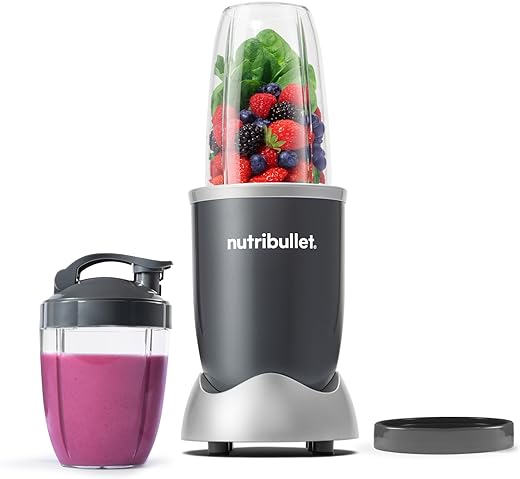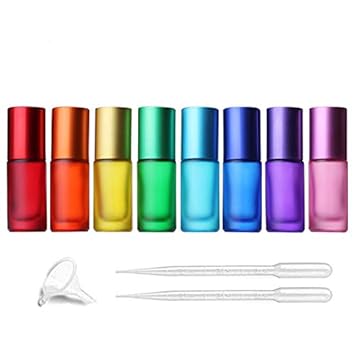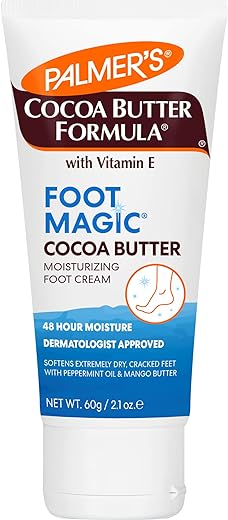Discover the shocking secret to ensuring a healthier tomorrow with this step-by-step guide. Unveil how proactive choices today can safeguard your well-being in the future. Learn the simple yet effective strategies to maintain a healthy lifestyle and make way for a brighter, healthier you tomorrow!
Early detection saves lives. Schedule now!
Assess Current Health Status
- Schedule Medical Check-Ups: Visit your primary healthcare provider for a comprehensive physical examination to assess your current health status.
- Undergo Screening Tests: Get screenings such as blood pressure checks, cholesterol tests, and blood sugar monitoring to identify any underlying issues.
- Consult Specialists: If needed, seek appointments with specialists like cardiologists, nutritionists, or therapists for a thorough evaluation.
Don’t hesitate to reach out to healthcare professionals to advocate for your overall well-being.
Create a Balanced Diet Plan
- Include a variety of nutrients in your diet such as carbohydrates, proteins, healthy fats, vitamins, and minerals. Ensure your meals encompass different food groups to meet your body’s nutritional needs.
- Incorporate a wide range of fruits and vegetables of various colors into your daily meals to benefit from diverse vitamins, minerals, and antioxidants.
- Opt for whole grains like brown rice, quinoa, and oats to provide essential fiber, vitamins, and minerals to support your digestive health and overall well-being.
- Choose lean protein sources like chicken, fish, tofu, beans, and legumes to help build and repair tissues, regulate hormones, and support muscle growth.
Regular Exercise Routine
Regular Exercise Routine
- Incorporate regular physical activity into your daily routine to improve cardiovascular health.
- Strengthen muscles by engaging in exercises like weightlifting, yoga, or bodyweight exercises regularly.
- Boost overall well-being by including activities you enjoy, such as swimming, biking, running, or dancing.
Adequate Sleep and Stress Management
- Prioritize quality sleep: Make sure you get 7-9 hours of sleep each night. Establish a relaxing bedtime routine, such as reading a book or taking a warm bath before bed to help signal the body that it’s time to wind down.
- Practice stress-relief techniques: Set aside 10-15 minutes daily for meditation or deep breathing exercises. Attend a beginner’s yoga class or follow online tutorials at home. These practices help calm the mind and reduce feelings of anxiety or tension.
- Create a sleep-friendly environment: Ensure your bedroom is dark, quiet, and comfortably cool. Invest in a comfortable mattress and pillows that support a good night’s rest. Consider using white noise machines or earplugs if external noises disrupt your sleep.
- Limit screen time: Avoid using electronic devices like phones, laptops, or tablets at least an hour before bed as the blue light emitted can interfere with the production of the sleep hormone melatonin. Instead, opt for reading a physical book or listening to calming music before sleeping.
Remember, taking care of your sleep and managing stress are essential for overall well-being and can greatly improve your mental and emotional health.
Hydration and Limiting Harmful Habits
Stay Hydrated and Stay Healthy:
Drink at least eight 8-ounce glasses of water daily to ensure proper hydration. Avoid Harmful Habits: Limit your alcohol consumption and quit smoking to protect your health. Your body will thank you by feeling more energized and healthy in the long run.
Regular Health Screenings
- Schedule regular health screenings and check-ups with healthcare professionals to detect any potential health issues early on.
- Take necessary preventive measures after being informed about the results of your screenings.
- Follow recommendations and advice given by your healthcare provider.
- Stay proactive about your health by proactively scheduling routine check-ups.
Maintain a Healthy Weight
- Monitor Your Weight Regularly: Step on a scale or check your weight using other methods frequently to track any changes.
- Calculate Your BMI: Use an online calculator that factors in your weight and height to determine your BMI.
- Aim for a Healthy Weight Range: Strive to keep your BMI within the healthy range recommended for your age and height.
- Seek Professional Advice: Consult with a healthcare provider for personalized guidance on maintaining a healthy weight.
Stay Informed and Educated
- Stay updated on health-related topics by following reputable health websites and subscribing to newsletters from trusted healthcare organizations.
- Keep yourself informed of medical advancements through reading scientific journals and attending health seminars in your area.
- Make well-informed decisions about your health by consulting with healthcare professionals and asking questions when unsure.
Taking Action for Tomorrow’s Wellness
It is just so important to take the necessary steps today to ensure a healthier tomorrow. Your future self will thank you immensely for your efforts.
Essential Supplies
Path to Wellness Tips
Maximize Your Health: Effective Strategies for Preventive Health Screenings
- Schedule regular appointments with your primary care physician to discuss which preventive health screenings are appropriate for you based on your age, gender, and family history
- Follow your physician’s recommendations and make a plan to have the necessary screenings done at the recommended intervals to stay up-to-date on your health status
- Learn about common preventive health screenings such as blood pressure testing, cholesterol checks, mammograms, colonoscopies, and vaccinations, and understand the importance of each in early detection and prevention of diseases
- Keep track of your screening results and discuss with your healthcare provider any abnormalities or follow-up care that may be required to address any health issues identified through screenings
- Embrace a healthy lifestyle that includes regular physical activity, a balanced diet, adequate sleep, and stress management to complement the benefits of preventive health screenings and maintain overall wellness
Importance of Early Detection
What are some common preventive health screenings recommended for different age groups?
Regular preventive health screenings are essential at every stage of life to catch potential health issues early. Here are some common preventive health screenings recommended for different age groups:
- **Young adults (18-30 years old):**
– Cholesterol screening (occasionally)
– Skin checks for skin cancer
– Immunizations (e.g., flu shot, HPV vaccine for eligible individuals)
- **Middle-aged adults (31-50 years old):**
– Cholesterol screening
– Blood sugar level testing (for diabetes)
– Colon cancer screening (starting at age 45 in most cases)
– Mammograms (for women as recommended)
– Eye exam (as recommended)
- **Senior adults (51 and older):**
– Cholesterol screening
– Blood sugar level testing
– Colon cancer screening
– Bone density scan (for osteoporosis risk assessment)
– Vision and hearing tests
– Shingles vaccination (for eligible individuals)
It’s essential to consult a healthcare provider to determine which screenings are most appropriate based on individual health history, risk factors, and lifestyle. Regular screenings can play a significant role in maintaining good health and catching any potential health issues early before they become serious. Make your health a priority by staying informed and taking necessary preventive measures.
What are some resources or organizations that provide information and guidance on preventive health screenings?
There are several trusted resources and organizations that provide information and guidance on preventive health screenings. The Centers for Disease Control and Prevention (CDC) website offers comprehensive information on various preventive screenings for different age groups and health conditions. The American Cancer Society provides guidelines on cancer screenings such as mammograms and colonoscopies. The US Preventive Services Task Force also offers evidence-based recommendations on a wide range of preventive health services. Your primary care provider can also offer personalized guidance on the most appropriate screenings for your individual health profile. By utilizing these resources, individuals can stay informed and proactive about their preventive health screenings.
How do preventive health screenings differ from diagnostic tests?
Preventive health screenings are tests or exams that look for diseases before individuals have symptoms. They aim to detect a disease early when treatment is most effective. On the other hand, diagnostic tests are conducted when a person is already showing symptoms of a disease, with the purpose of confirming a diagnosis. Preventive screenings help prevent disease, while diagnostic tests help diagnose existing health issues. It is essential to undergo both types of tests to maintain good health and manage any potential medical conditions effectively.
What should someone do if a preventive health screening comes back with abnormal results?
If someone’s preventive health screening comes back with abnormal results, it is important for them to follow up with their healthcare provider as soon as possible. This will allow for further evaluation, discussion of the results, and development of an appropriate plan of action. Ignoring abnormal screening results can lead to missed opportunities for early detection and intervention of potential health issues. Prompt action is crucial in ensuring optimal health and well-being.
How can one prepare for a preventive health screening and what should they expect during the procedure?
To prepare for a preventive health screening, an individual should start by following any specific guidelines provided by their healthcare provider, such as fasting requirements prior to the tests. It’s important to bring a list of current medications, any existing health conditions, and previous procedures or surgeries to discuss with the healthcare provider.
During the procedure, they can expect to be asked about their health history and lifestyle factors. The screening may involve measurements such as blood pressure, weight, and height. Depending on the specific screening, tests like blood tests, X-rays, and screenings for conditions like high cholesterol or diabetes may be conducted. It is common for the healthcare provider to discuss the results with the individual after the procedures, including any recommendations for follow-up or further testing if necessary.
Remember that preventive health screenings are designed to catch any potential health issues early on, allowing for timely intervention. It’s important to approach these screenings with a proactive mindset, taking steps to prioritize and maintain good health.
Are there specific screenings recommended based on family history of certain conditions?
Yes, there are specific screenings recommended based on a family history of certain conditions. Healthcare providers may recommend screenings such as genetic testing, imaging studies, or blood tests for conditions that have a genetic component. These screenings help to identify individuals who may be at a higher risk of developing certain health conditions early on, allowing for preventive measures or early treatment. It is essential to consult with a healthcare provider to discuss personalized screening recommendations based on one’s family history.














![[0]Avery Mini Durable 3 Ring Binder, 2" Round Rings, Holds 5.5" x 8.5" Paper, Label Holder, 1 Black Binder (27554)](https://adventistmarket.com/wp-content/uploads/2024/02/0averyminidurable3ringbinder2roundringsholds55x85paper.jpg)
![[0]Bento Box Lunch Containers for Adults & Kids (3 Pack, 39 oz) - Lunch Box Meal Prep Containers with Lids - Microwave, Freezer, & Dishwasher Safe, Leakproof Reusable Food Prep Containers, 3 Compartments](https://adventistmarket.com/wp-content/uploads/2024/02/0bentoboxlunchcontainersforadultskids3pack39oz-lunchbox.jpg)



Can you consider adding a section on the benefits of outdoor activities for overall health? Engaging in activities like hiking, biking, or simply spending time in nature can have significant physical and mental health benefits.
Thank you for your suggestion! Including information on the benefits of outdoor activities is a great idea to promote holistic well-being. We will definitely consider incorporating it into future updates of the guide.
Following this guide has been life-changing for me. I used to struggle with maintaining a healthy weight and staying motivated to exercise regularly. But by following the steps outlined here, I’ve lost 20 pounds, feel more energetic, and have seen a significant improvement in my overall well-being.
We are thrilled to hear about your success! Your dedication to following the guide’s principles is truly inspiring. Keep up the fantastic work!
I found step 4 on adequate sleep and stress management particularly helpful. Incorporating mindfulness practices like meditation before bed has significantly improved my sleep quality and reduced stress levels. It’s amazing how small changes can make a big impact on overall health!
I’ve been having trouble sticking to a balanced diet plan despite my best efforts. I tend to crave unhealthy snacks in the evenings. Any tips on how to control cravings and stay on track with healthy eating?
Cravings can be tough to overcome, but one strategy is to keep healthier snack options readily available to satisfy cravings without derailing your diet. Additionally, practicing mindful eating and recognizing triggers can help you make better choices. Stay committed, and remember that progress is a journey!
I suggest including information on the importance of regular eye exams as part of the health screenings. Many people overlook eye health, but early detection of issues like glaucoma or cataracts can prevent serious complications later on.
Thank you for your suggestion! Adding a section on regular eye exams is a great idea to emphasize the importance of comprehensive health screenings.